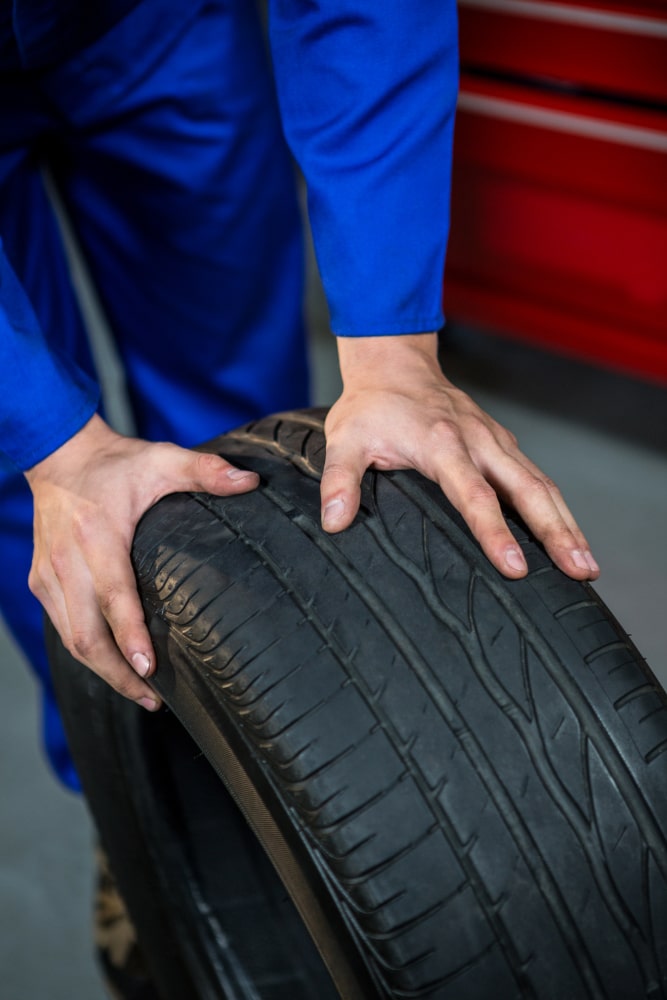Selling Your Tire Shop

Financial Statements and Lease Status
Early in the process, we determine if your business qualifies for financing. Buyers often need financing options to offer top dollar. We’ll submit your financial statements and three years of tax returns to a lender for a pre-sale review. If the lender approves SBA financing, we can advertise it to significantly increase potential buyers. SBA financing allows buyers to put down only 10% and finance the rest, making it easier to sell your tire business.
We also evaluate your lease and landlord correspondence. In particular, a short lease with limited or unfavorable extension options can be a challenge, especially for high-visibility locations. Furthermore, if you own the property, we’ll need to know if the business paid rent at fair market value for valuation purposes.
Valuation Strategies for Tire Businesses
Several factors influence the selling price of a tire shop:
- Financial Performance: Strong financials are key to attracting buyers.
- Market Conditions: Economic conditions, competition, and industry trends all play a role.
- Business Size and Location: A larger business in a prime location generally commands a higher price.
- Assets: Tangible assets (equipment, inventory) and intangible assets (brand reputation, customer base) contribute to value.
- Growth Potential: Buyers look for businesses with future growth opportunities.
If you plan to sell in the future, shift your focus from revenue and profit to include valuation strategies. For example, if your shop relies heavily on a few commercial fleet customers, diversify your customer base to reduce buyer risk.
Pre-Due Diligence: Preparing Your Tire Business for Sale
Prepare information for buyers before listing your business. Rushing this stage is detrimental. Pre-due diligence meetings build trust and shorten closing time, preventing buyer’s remorse.
- Organized Financial Records: Prepare detailed financial statements and tax returns.
- Inventory Management System: Demonstrate efficient inventory control with software like ASA TireMaster or a generic solution like Fishbowl.
- Personnel Records: Showcase your technicians’ experience and certifications (TIA, ASE). Up-to-date personnel files are essential.
- Recurring Revenue Opportunities: Highlight any contracts or services that generate recurring revenue.
- Environmental Compliance: Address used tire disposal, hazardous waste, and permits.
- Customer Acquisition and Retention: Detail your marketing strategies and customer loyalty programs.
- Competition and Market Analysis: Provide insights into the competitive landscape and potential market changes.
- Building Condition: Document the condition of the building and its mechanical systems.
- FFE (Furniture, Fixtures, and Equipment): Prepare a list of FFE included in the sale.
Preparing for Buyer Questions
Inventory Management
Utilize shop management software (e.g., Tire Shop Wizard, ASA Tire Master) to manage inventory, scheduling, customer data, and sales reporting. Moreover, effective inventory management that optimizes working capital and handles seasonal fluctuations increases business value for buyers.
Personnel
Showcase your technicians’ experience, and any tire industry specific certifications such as TIA, ATS, ETS, or FTS certifications, and more general automotive knowledge base such as ASE certifications. Furthermore, ensure personnel files are up-to-date and meet state/federal requirements. This combination of factors reassures buyers that a skilled workforce is in place and will make a difference in selling your tire shop.
Miscellaneous Buyer Question Topics
●Businesses everywhere are looking for ways to add predictability to their income. Therefore, what are recurring revenue opportunities?
● Where are your used tire disposal and hazardous waste permits. A buyer wants to ensure the shop has established procedures and contracts in place for responsible waste management. Moreover, disposal of used tires and hazardous waste can be expensive. Buyers want to understand these costs and how they affect the shop’s profitability. They’ll also want to know if there are any potential liabilities related to past waste disposal practices.
● Financing options for tire and service purchases
● Do you have road hazard warranty offerings
● Show me your customer acquisition and retention plans (Consider: are there any aspects of your business that customers view as both unique and of benefit to them?)
● Are you aware of new competitors or developments impacting visibility of the business (honesty and transparency help prevent last minute deal failures)
● Building and mechanical systems’ condition
● Please provide a list of conveyed furniture, fixtures, and equipment (FFE)
● Upside potential. (A buyer offer will reflect what he/she believes is the likely income stream that can be expected.)
● Is the Seller willing to carry note. (Most sellers recoil from this idea initially, but sometimes it turns out to be a financially advantageous idea.)
● Employees. Since your personal talents and skills do not convey with the business, retention of trained employees is important. Are there safety issues or HR complaints?
Inventory Accounting
Finally, the buyer will ask about the Inventory tracking method (FIFO or LIFO) In inflationary times, LIFO leads to a lower gross profit because COGS is calculated using the newer, higher costs. By contrast, FIFO leads to a higher gross profit because the cost of goods sold (COGS) is calculated using the older, lower costs. This results in higher taxable income and potentially higher taxes.

Information to Showcase in Marketing
Highlight your business’s desirable location, high traffic volume, visibility, accessibility, limited competition, and complementary businesses nearby.
Next Steps in Selling Your Business
The next steps in selling your tire business are to prepare a list of FFE to transfer with the business, including core tire service equipment and any additional tools for expanded services. To facilitate this process, your accountant may be able to readily provide an Excel-based depreciation schedule showing property description, date in service, and tax cost.
Download My E-Book
Download my 35-page e-book for insights on building and polishing your business operations, which will help you become a better negotiator. Whether you are focused on selling your tire business or simply want to run your business better this e-book will help.

Let us put our expertise and experience to work for you, ensuring a successful sale and a fulfilling next chapter in your life.
Exit On Your Terms

Quick Links
Industry Insights
Terms and Conditions | Privacy & Cookies Policy | Copyright © 2026 Snake River Business Brokers LLC | Site Design by Deal Studio
